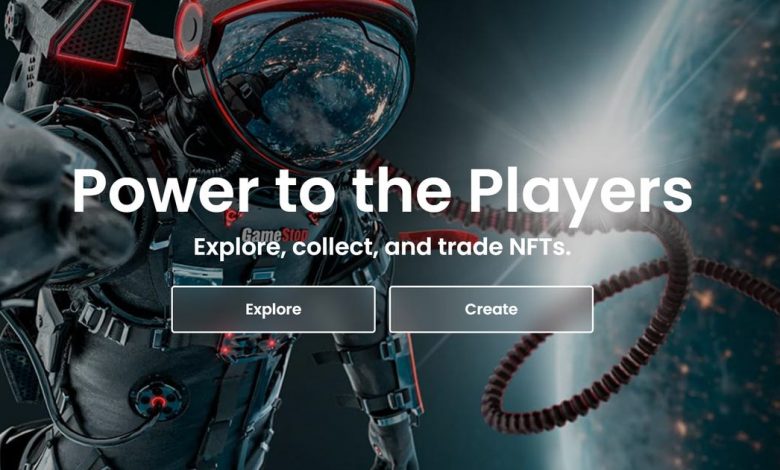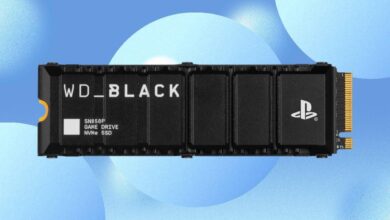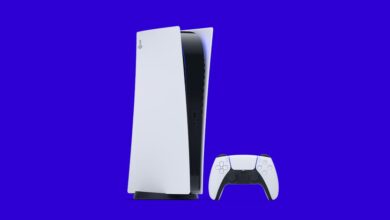Over $3M Has Been Spent on GameStop’s NFT Marketplace

[ad_1]
GameStop’s experiment with NFTs has gotten off to a surprisingly good start. Since its NFT marketplace launched on Monday, over $3.5 million has been spent on the platform’s top 50 NFT collections. With a royalty rate of 2.25% per sale, GameStop’s marketplace has generated about $67,500 in revenue for the company.
That’s not gamechanging money, but is more than many expected. GameStop’s NFT marketplace launch occured in the middle of crypto winter, which has seen interest in NFTs fall alongside the tanking value of bitcoin and ether. Ether, with which most NFTs are purchased, is down nearly 70% since the new year dawned. Many of GameStop’s customers categorically reject NFTs, with attempts by Ubisoft and Square Enix to integrate crypto and NFTs into games being spurned by gamers en masse.
GameStop hopes to compete with OpenSea, which is the biggest NFT marketplace. About $17 billion has been spent on Ethereum-based NFTs on the OpenSea marketplace this year, according to Dune analytics. OpenSea takes a 2.5% cut of every NFT sold on its platform, meaning revenues would sit at about $425 million in the last 7 months.
GameStop’s NFT marketplace has had a stronger start than crypto exchange CoinBase. After many delays and much anticipation, CoinBase’s NFT marketplace launched on April 20 — and has seen around $3 million in volume since, according to Dune Analytics. The biggest NFT collection on GameStop’s NFT marketplace is MetaBoy, which features Game Boy-themed pixel art. Over $1 million has been spent on MetaBoy NFTs alone.
GameStop’s business has struggled over the past decade as people increasingly buy games online, a trend pronounced enough that Sony offers a digital-only PlayStation 5
. With a customer base in flux, the company now eyes the lucrative NFT market, which was last year worth $25 billion. In addition to its newly-launched marketplace, GameStop also offers its own cryptowallet.
NFTs are tokens minted from a blockchain that certify ownership of a digital asset; they’re the digital equivalent of the deed to a property. Critics say NFTs are a temporary craze that will eventually fade to obscurity once the bubble well and truly bursts, while proponents argue NFTs will change the internet economy forever.
Unfortunately for the GameStop, the recent crypto crash has dashed enthusiasm for all things blockchain. NFT sales on OpenSea fell from $2.5 billion in May to $696 million in June. With ether sitting at around $1,000, there’s enough market activity for an incumbent company like OpenSea to chug along, but it will be far more challenging for a newcomer like GameStop to etch a space for itself in the market.
GameStop’s marketplace is Ethereum-based, meaning it doesn’t sell NFTs built on blockchains like Solana, and currently only offers artwork. GameStop is seemingly banking on its existing customer base to dabble in NFT trading, as the marketplace currently doesn’t offer blue chip collections like Bored Ape Yacht Club, Doodles or Cool Cats — collections popular among NFT traders, but unaffordable to most people.
Eventually, the marketplace will expand to encompass “Web3 gaming“, which refers to games that utilize NFTs and cryptocurrencies. To that end, GameStop has struck up a partnership with Immutable, a company that specializes in blockchain gaming. The two have offered a $100 million grant to Web3 developers that join the platform.
It comes at a tumultuous time for GameStop. Last week the company fired its Chief Financial Officer amid wider layoffs within the organization. “Change will be a constant as we evolve our commerce business and launch new products through our blockchain group,” GameStop CEO Matt Furlong said in an email to staff, according to Kotaku. In the company’s most recent quarterly financial report, at the end of April, it revealed net losses of $157 million.
[ad_2]
Source link






